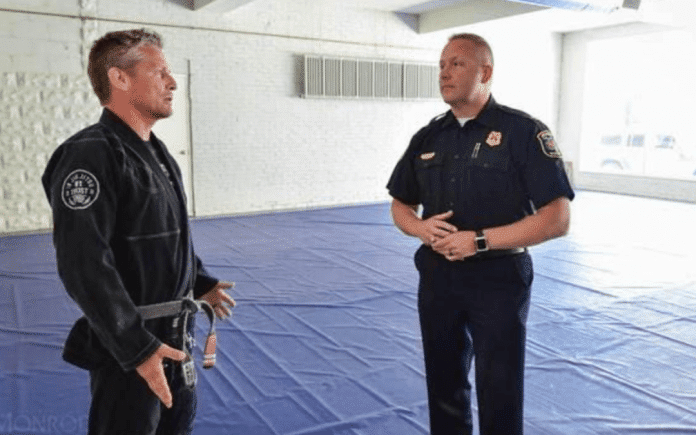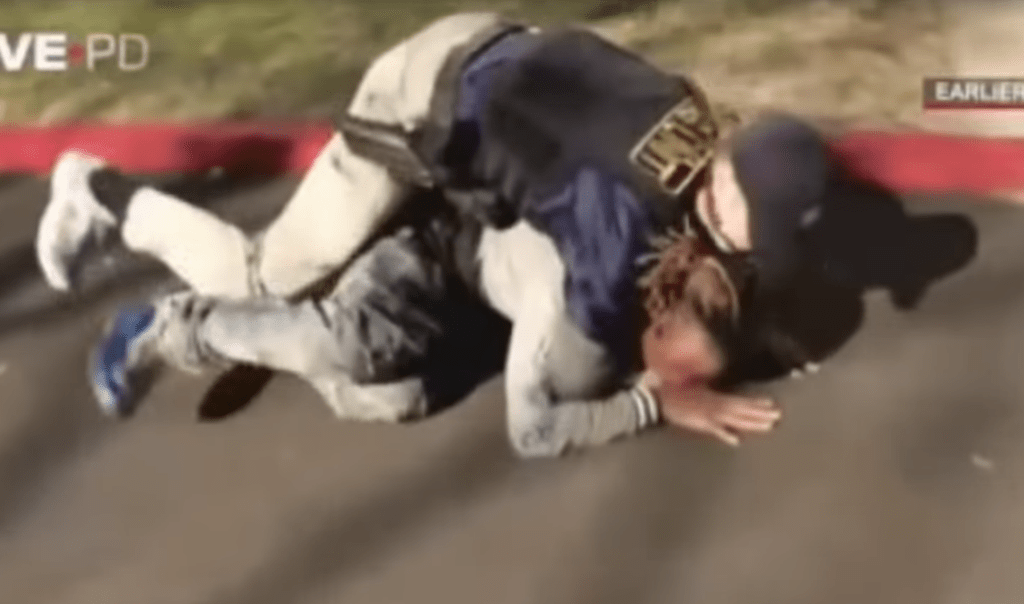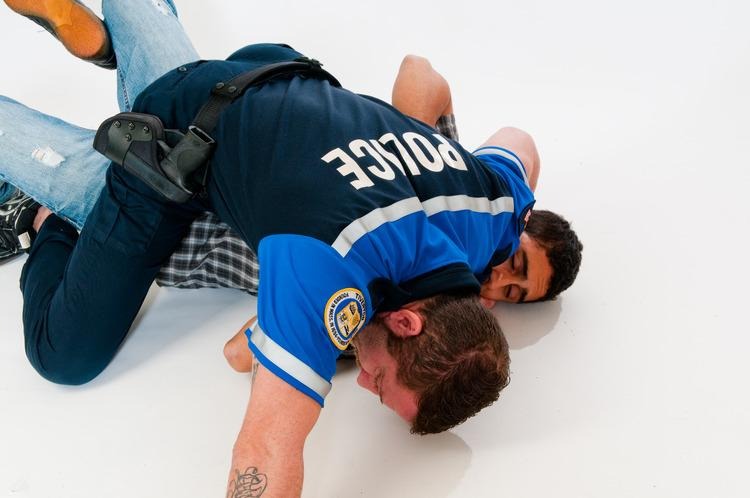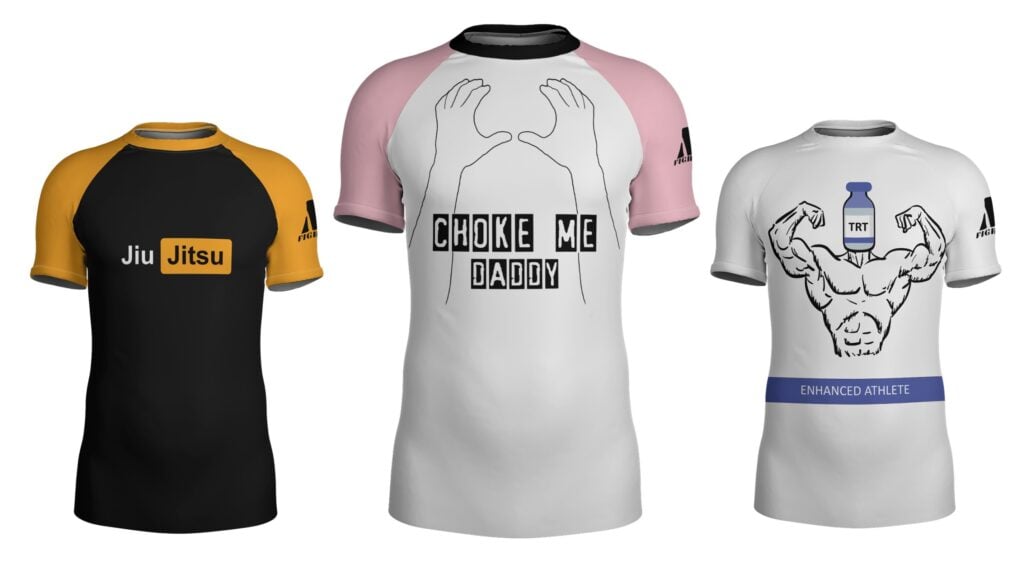
This is a subject that’s been pretty much beaten to death. Do police officers and other law enforcement members need to learn Jiu-Jitsu? So far, just about every martial art has made the claim that it is the perfect one of r self-defense. henceforth, most martial arts have staked the claim they’re the one thing law enforcement officers can’t be without. When it comes to BJJ for police officers, though, there’s plenty of evidence out there to suggest both that they need it, and that it can save their lives.
What’s the best self-defense martial art? There’s none. Most things will help you defend yourself, granted, some to a better degree than others. Do you know what’s common for them all though? You’ll get hit, scratched, and otherwise injured in the process. That’s guaranteed. The big question is whether or not you want to get into a fistfight with someone, or try and control the situation and resolve it on your own terms? That’s where Jiu-jitsu comes in, particularly in the case of BJJ for police officers.
The Evidence From Across The World
Brazilian Jiu-Jitsu is a fairly new martial art. However, as such, it has proved to be effective. After all, this breakthrough came as a result of Royce Gracie beating people of different martial arts backgrounds in the early UFCs. There are no denying BJJ works, particularly in one-on-one situations. That said, BJJ for police officers is something that sounds like a no-brainer, but still, there’s no real action to help law enforcement members learn an art that can save their lives, and the lives of those they’re protecting.

Another great example is Krav Maga and the Israeli police force. In a country that’s constantly on the brink of conflict, military service is mandatory for both male and female citizens. While they all learn krav maga in the military, those that decide to join the police actually have to learn it at a much higher level. So far it has proven to be a lifesaver, and this approach is very logical and obvious.
Finally, it doesn’t have to be an indigenous martial art so those police officers can successfully defend themselves. In Ecuador, police forces have been turning to Russian Systema to help them do their job safely and effectively.
Whichever way you look at it, the evidence shows that martial arts can help law enforcement, particularly grappling-based martial arts. So why not throw in BJJ for police officers in the US into the mix? It can only help!
BJJ For Police Officers – A No Brainer
Why should police officers train Brazilian Jiu-Jitsu? There are countless answers to this one, but I’ll stick with the most important ones for now. First of all, BJJ is a grappling martial art that’s all about control. Even among other grappling arts, there’s an incredible amount of focus in BJJ. Moreover, it takes place on the ground, where most violent altercations end up anyways. When it comes to arresting people, 100% of the cases end up on the ground. Clearly, knowing how to control a resisting person on the ground is a huge thing for police officers.
Next up, BJJ for police officers opens up opportunities to calm situations down. You don’t have to rear-naked choke everyone if you’re working in law enforcement. Sometimes people just need a reminder they’re not as tough as they think. Controlling someone from the mount, for example, can make even aggressive people feel like little kids. OFten times., that’ll be more than enough for a peaceful resolution and an arrest with no resistance. The alternative is fighting it out while looking for common arrest techniques that are not really universally effective.
Technically speaking, there are two huge aspects of Jiu-Jitsu that are essential for police officers. The first is takedowns and throws, which is something a police officer can’t do without. Regrettably, there’s plenty of evidence and many examples of police officers badly needing training in that department. Training Jiu-Jitsu can easily provide. The second one is submissions. In creating situations, putting someone to sleep from an awkward position or angel can literally save lives. Particularly of the alternative is to tase or injure someone with a firearm. Once again, logical.
What’s The Catch?
So, even in the light of overwhelming evidence, why is not BJJ for Police officers mandatory? The answer is a surprising and somewhat dumb one, but true nonetheless. There’s a loop of sorts that prevents law enforcement members from training regularly The fact that it is not mandatory, means they can come up with reasons not to train. There’s an endless loop there, one that can be solved very easily – make JIu-Jitsu mandatory for law enforcement.

However, there’ another treason why BJJ for police officers is not an everyday occurrence. Namely, plenty of officers have no idea what BJJ is, nor how it can help them be safer. This lack of information, along with the “I haven’t needed it so far, why start now” approach are the most common excuses law enforcement officers make. And you can see how easy the solution to all these conundrums is – make BJJ mandatory. The moment that happens, the lop will be broken.
Closing Arguments
The goal in Jiu-Jitsu is to find the most efficient way of controlling a resisting opponent. With law enforcement, the goal is the same – stay safe and be ultra-effective when it comes to executing your duties. The unpredictable nature of the job, though, means you need to have reactions rather than conscious actions when push comes to shove. BJJ for police officers, as a mandatory part of their training, ensure our officers can protect themselves, their colleagues, and the public in a way that’s bot he effective, and can be as harmless or harmful to suspect as the officers deem necessary.


![Darce Choke Encyclopedia – Origins, Mechanics and Variations [2025] BJJ, choke, Brabo, BJJ Darce Choke, D'arce Choke, Darce BJJ Choke](https://bjj-world.com/wp-content/uploads/2017/11/JungPoirierLeeYahoo-218x150.jpg)









![X-Guard Trickery Kyle Sleeman DVD Review [2025] X-Guard Trickery Kyle Sleeman DVD Review](https://bjj-world.com/wp-content/uploads/2025/03/x-guard-trickery-kyle-sleeman-dvd-review-218x150.png)
![Countering with Crab Ride Anthony Budion DVD Review [2025] Countering with Crab Ride Anthony Budion DVD Review](https://bjj-world.com/wp-content/uploads/2025/03/countering-with-crab-ride-anthony-budion-dvd-review-218x150.png)
![Closet Closed Guard Craig Jones DVD Review [2025] Closet Closed Guard Craig Jones DVD Review](https://bjj-world.com/wp-content/uploads/2025/03/closet-closed-guard-craig-jones-dvd-review-218x150.png)
![Xanadu Back Takes Levi Jones-Leary DVD Review [2025] Xanadu Back Takes Levi Jones-Leary DVD Review](https://bjj-world.com/wp-content/uploads/2025/03/xanadu-back-takes-levi-jones-leary-dvd-review-218x150.png)

![No-Gi Grapplers Guide To Front Headlock Joel Bane DVD Review [2025] No-Gi Grapplers Guide To Front Headlock Joel Bane DVD Review](https://bjj-world.com/wp-content/uploads/2025/03/no-gi-front-headlock-joel-bane-dvd-review-218x150.png)
![Basic Closed Guard Jasmine Rocha DVD Review [2024] Basic Closed Guard Jasmine Rocha DVD Review](https://bjj-world.com/wp-content/uploads/2024/11/basic-closed-guard-jasmine-rocha-dvd-review-324x235.png)



![Osoto Gari for Jiu Jitsu Jackson Nagai DVD Review [2024] Osoto Gari for Jiu Jitsu Jackson Nagai DVD Review](https://bjj-world.com/wp-content/uploads/2024/10/osoto-gari-for-jiu-jitsu-jackson-nagai-dvd-review-100x70.png)
![Complete Front Headlock System Michael Pixley DVD Review [2024] Complete Front Headlock System Michael Pixley DVD Review](https://bjj-world.com/wp-content/uploads/2024/10/front-headlock-system-michael-pixley-dvd-review-100x70.png)
![Ginastica Natural Alvaro Romano DVD Review [2024] Ginastica Natural Alvaro Romano DVD Review](https://bjj-world.com/wp-content/uploads/2024/12/ginastica-natural-alvaro-romano-dvd-review-100x70.png)


![Creating Back Exposure Luke Griffith DVD Review [2025] Creating Back Exposure Luke Griffith DVD Review](https://bjj-world.com/wp-content/uploads/2025/01/creating-back-exposure-luke-griffith-dvd-review-100x70.png)





![Gracie Secrets Closed Guard Kyra Gracie DVD Review [2024] Gracie Secrets Closed Guard Kyra Gracie DVD Review](https://bjj-world.com/wp-content/uploads/2024/12/closed-guard-kyra-gracie-dvd-review-100x70.png)
![No-Gi Pressure Mastery JT Torres DVD Review [2024] No-Gi Pressure Mastery JT Torres DVD Review](https://bjj-world.com/wp-content/uploads/2024/10/no-gi-pressure-mastery-jt-torres-dvd-review-100x70.png)
![Mastering Control From Top Position Trent Hidlay DVD Review [2024] Mastering Control From Top Position Trent Hidlay DVD Review](https://bjj-world.com/wp-content/uploads/2024/11/control-from-top-position-trent-hidlay-dvd-review-100x70.png)
![Baby Shark Guard System Diogo Reis DVD Review [2025] Baby Shark Guard System Diogo Reis DVD Review](https://bjj-world.com/wp-content/uploads/2025/02/baby-shark-guard-system-diogo-reis-dvd-review-100x70.png)


![Full Guard Formula James Booth DVD Review [2025] Full Guard Formula James Booth DVD Review](https://bjj-world.com/wp-content/uploads/2025/02/full-guard-formula-james-booth-dvd-review-100x70.png)

![Daisy Fresh WHITE BELT Wrestling Curriculum DVD Review [2024] Daisy Fresh WHITE BELT Wrestling Curriculum DVD Review](https://bjj-world.com/wp-content/uploads/2024/10/daisy-fresh-white-belt-wrestling-curriculum-review-100x70.png)
![Nicholas Meregali No-Gi System DVD Unpacked: A Detailed Review [2024] Nicholas Meregali No-Gi System DVD Unpacked: A Detailed Review](https://bjj-world.com/wp-content/uploads/2024/09/nicholas-meregali-no-gi-system-dvd-unpacked-review-100x70.png)
![Dynamic Headquarters Passing Jason Rau DVD Review [2024] Dynamic Headquarters Passing Jason Rau DVD Review](https://bjj-world.com/wp-content/uploads/2024/10/dynamic-headquarters-passing-jason-rau-dvd-review-100x70.png)


![Eoghan O’Flanagan Bundle Down Right Sloppy Jiu-Jitsu Review [2024] Eoghan O'Flanagan Bundle Down Right Sloppy Jiu-Jitsu Review 2024](https://bjj-world.com/wp-content/uploads/2024/09/down-right-sloppy-jiu-jitsu-eoghan-oflanagan-bundle-100x70.png)